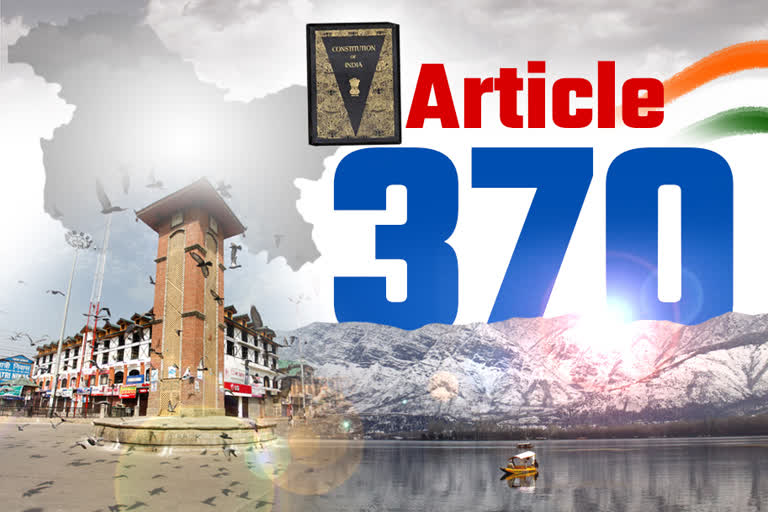Jammu and Kashmir:Union Home Minister Amit Shah on Monday proposed to modify Article 370 of the Indian Constitution in the Rajya Sabha. Article 370 gives special status to the state of Jammu and Kashmir. The announcement was made amid an unprecedented lockdown and flaring tensions in Jammu and Kashmir.
“The day it's published in Gazette from then onward 370(1) will not be in place,” Amit Shah said in the Rajya Sabha, even as members of the opposition protested.
The government has also proposed to bifurcate the Jammu and Kashmir into two Union territories – Jammu and Kashmir, which will have a legislature, and Ladakh, which will be without a legislature.
The Bharatiya Janta Party has been opposing the special status for Jammu and Kashmir for a long time. It had earlier claimed that it could not be repeal Article 370 during Atal Bihari Vajpayee's reign due to lack of a majority. The BJP has been opposing it since Jan Sangh days.
What is Article 370?
Article 370 was included in the Indian Constitution on October 17, 1949, and it exempts Jammu and Kashmir from the Indian Constitution (except Article 1 and 370 itself) and it permits the state to draft its own constitution.
The Article states:
- The Article does not withstand anything in the Indian Constitution
- The provisions of Article 238 shall not apply in relation to the State of Jammu and Kashmir
- It restricts Parliament’s legislative powers in respect of J&K. For extending a central law on subjects included in the Instrument of Accession (IoA), mere “consultation” with the state government is needed. But for extending it to other matters, “concurrence” of the state government is mandatory.
Article 370 and the Instrument of Accession
The history of Article 370 dates back to the Independence of British ruled India. the Instrument of Accession came into being when the Indian Independence Act,1947 divided British India into India and Pakistan. The Act provided some 600 princely states with three options:
- To remain an independent country
- To join the Dominion of India
- To join the Dominion of Pakistan
If any of the princely states decided to join either of the countries', it had to be done through an Instrument of Accession.
The Act, however, did not describe any provisions for the IoA and left the conditions for any such contract to be decided by the state itself. But, it did state that agreement made between the country and the respective state needs to be honoured, and in case of any breach of contract, the general rule called for status quo to be maintained.
When the Instrument of Accession for Jammu and Kashmir was signed on October 26, 1947, by Raja Hari Singh, the then ruler of Kashmir, he explicitly mentioned that the terms of “my Instrument of Accession cannot be varied by any amendment of the Act or of Indian Independence Act unless such amendment is accepted by me by an Instrument supplementary to this Instrument”.
